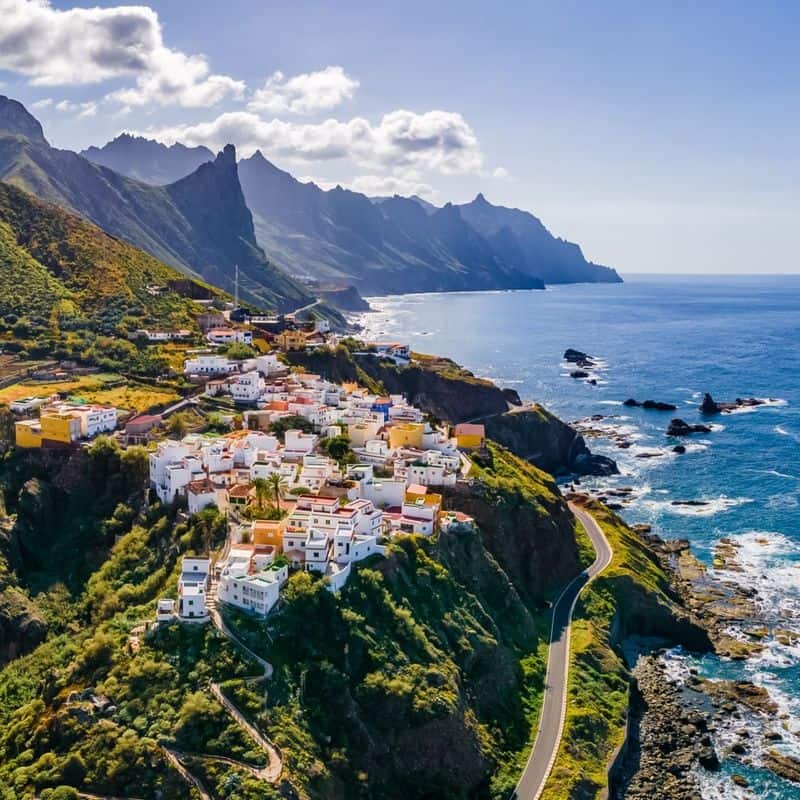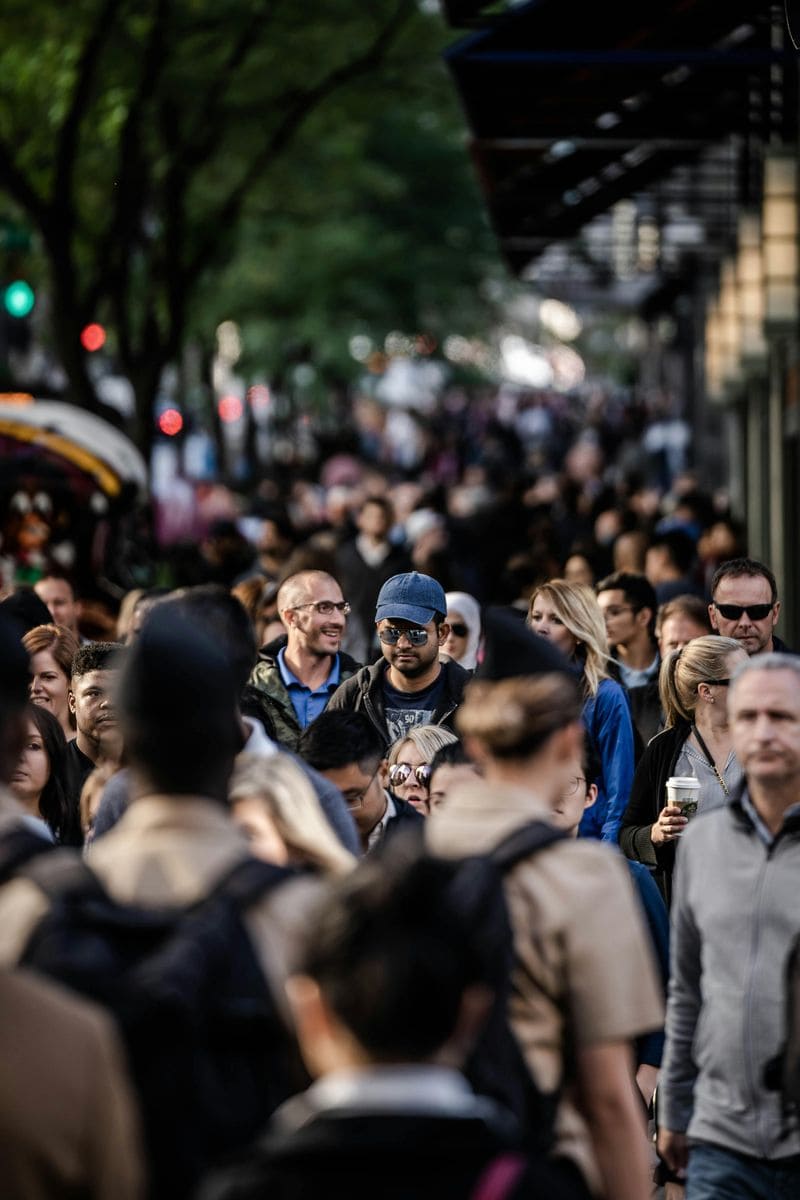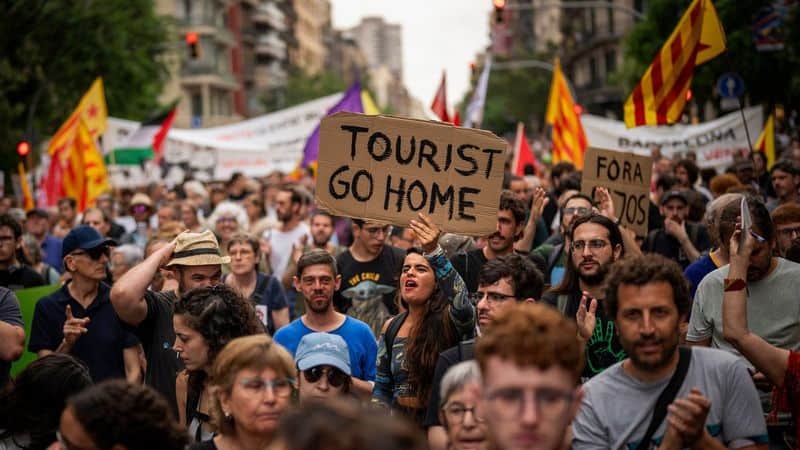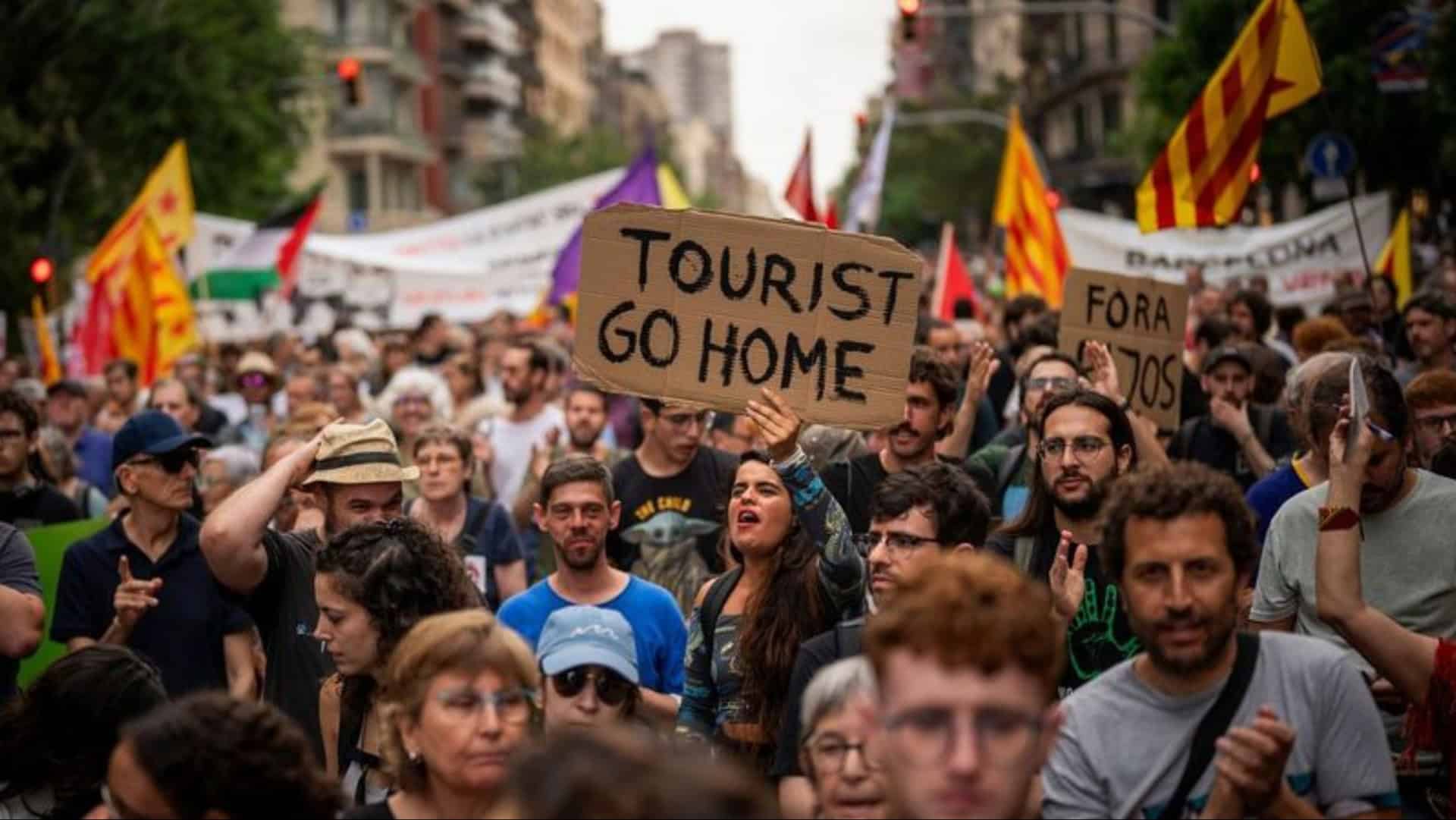In Spain, the effects of rampant tourism have taken center stage, triggering massive protests.
Residents demand action against the overwhelming influx of tourists that escalates living costs and strains local resources.
1. Canary Islands Call for Tourism Limit

In the sunny Canary Islands, thousands voiced their concerns about the overwhelming tourist numbers.
With marches in major cities, residents demand restrictions to preserve their quality of life.
Such a high visitor-to-resident ratio strains housing and resources, pushing the locals to rally for change.
Canaries seek a balance between tourism and community well-being.
2. Skyrocketing Housing Costs

Housing in Spain has become increasingly unaffordable, with rents doubling over a decade as salaries stagnate.
This spike is attributed to tourist accommodations dominating the market, leaving locals struggling to find homes.
The imbalance has turned housing into a national concern, as citizens call for effective measures to address the crisis.
3. Water Supply Worries

Water supply issues add to the residents’ woes, as increased tourism exacerbates shortages.
Demonstrators in Spain have highlighted water conservation as a priority, urging authorities to tackle the problem.
With tourism booming, the demand on water resources stresses the environment, which activists say requires urgent attention and innovative solutions.
4. Tourist Arrivals Surge

Spain, now the world’s second most visited country, expects even more tourists, with arrivals peaking at 94 million in 2024.
This surge, while economically beneficial, raises concerns about overburdened local services and infrastructure.
Citizens worry that without proper management, the influx could disrupt local life, making sustainable tourism a focal point.
5. Traffic Congestion Chaos

Traffic congestion in popular tourist regions worsens during peak seasons. Residents face daily frustrations with clogged roads and prolonged travel times.
The stress on public transportation and road networks calls for strategic planning to alleviate these issues.
Locals seek innovative solutions to ensure easier transit and reduce tourism-related disruptions.
6. Health Services Strain

With tourists flocking to Spain, health services often become overextended, leaving residents with limited access during peak seasons.
The strain on medical facilities raises concerns about the quality and availability of care.
Locals are pushing for better resource allocation and policies to ensure that healthcare remains accessible to all.
7. Impact on Local Communities

The impact of tourism on local communities is profound, altering the social fabric and cultural dynamics.
While economic benefits are undeniable, the cultural shift leaves many longing for the days before overtourism.
Communities are seeking ways to preserve their identity and heritage while adapting to modern pressures.
8. Airbnb Controversy

The rise of Airbnb has sparked controversy in Spain, where 66,000 listings face scrutiny for regulatory breaches.
With a focus on compliance, authorities demand removals to protect housing availability for locals.
The ongoing debate highlights tensions between the tourist economy and the need for affordable housing, a balancing act yet to be achieved.
9. Court Rulings and Compliance

Recent court rulings demand Airbnb retract thousands of properties cited for violations.
This legal push aims to ensure that rentals comply with local regulations, emphasizing the importance of fair housing practices.
The decisive actions serve as a reminder that tourism must coexist with legal frameworks to benefit all stakeholders.
10. Affordable Housing Efforts

In response to the housing crisis, Spanish officials are actively seeking solutions.
Efforts include negotiating with the EU for funding and exploring policies to increase affordable housing.
These initiatives are crucial in addressing the imbalance caused by tourism-driven demand, aiming to secure comfortable living conditions for residents.

